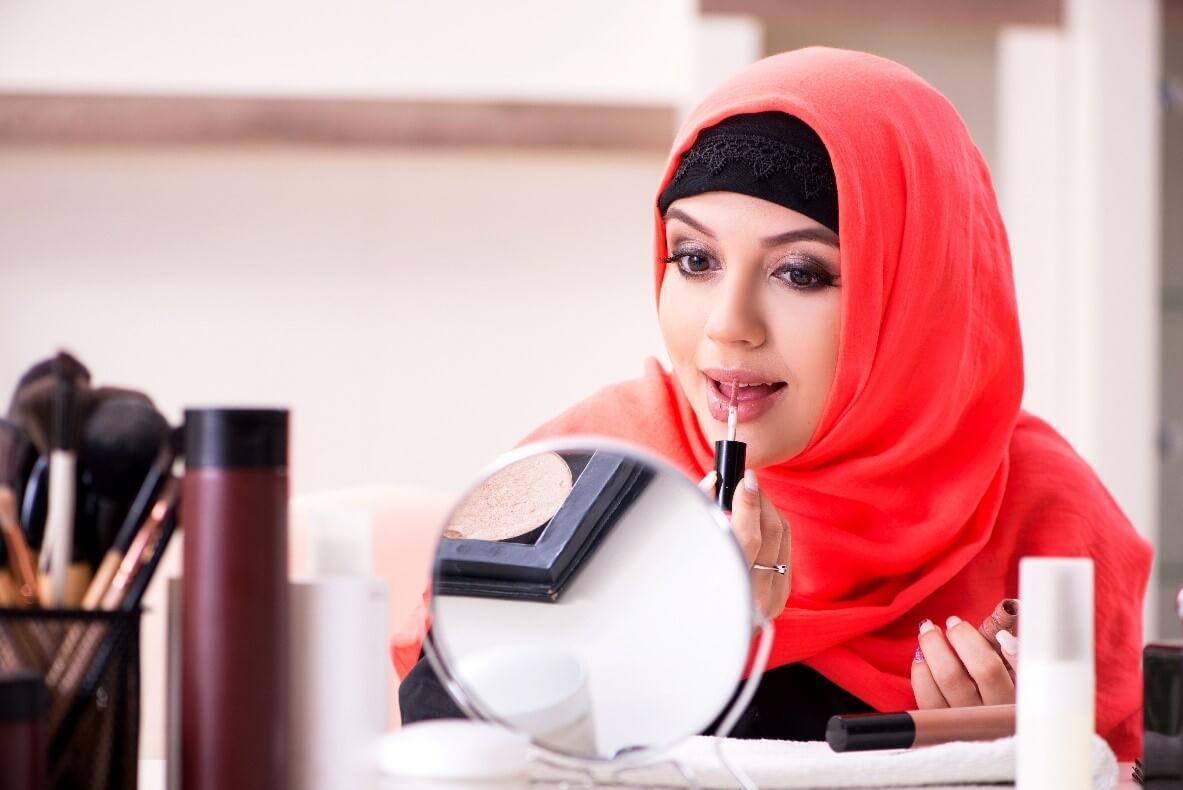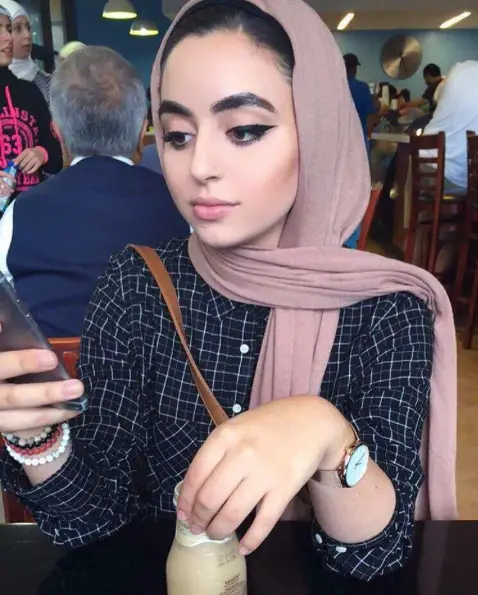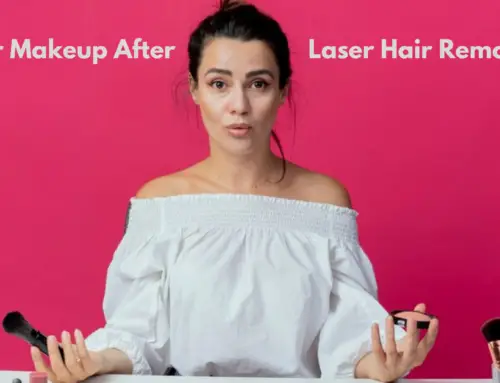When it comes to the question of whether wearing makeup is haram, the answer isn’t as simple as black or white. It’s a complex issue that has been debated by scholars and individuals alike. While some argue that cosmetic enhancements are a form of self-expression and can boost one’s confidence, others claim that it goes against the teachings of their religious beliefs.
The debate around the permissibility of wearing makeup within certain religious contexts is rooted in the history and interpretations of religious texts. In Islam, for example, differing opinions exist among scholars regarding the use of cosmetics. While some interpret certain verses as prohibiting the alteration of one’s natural appearance, others argue that modest makeup that enhances one’s natural features is permissible. It’s important to note that individuals may seek guidance from their religious leaders or consult interpretations of religious texts to inform their personal decisions about wearing makeup within the bounds of their faith.
Makeup is a personal choice, but in Islamic teachings, it is generally considered haram (forbidden) if it is done with the intention to deceive or attract attention inappropriately. However, there are varying opinions within the Muslim community, and some scholars permit the use of minimal makeup for beautification without crossing the boundaries of modesty. It is important to consult with a knowledgeable religious authority for guidance in this matter.

Is wearing makeup haram?
Makeup has become an integral part of many people’s daily routines. It is used to enhance beauty, boost confidence, and express individuality. However, for some individuals, there may be religious considerations when it comes to wearing makeup. In this article, we will explore the question: Is wearing makeup haram? Let’s dive deeper into this topic and understand the different perspectives.
Understanding the concept of haram
To determine whether wearing makeup is haram or not, it is important to understand the concept of haram in Islam. Haram is an Arabic term that translates to “forbidden” or “prohibited.” It refers to any action or behavior that goes against the teachings of Islam. The Islamic faith has specific guidelines and principles that Muslims are encouraged to follow in their daily lives.
When it comes to wearing makeup, different interpretations exist within the Muslim community. Some scholars and individuals believe that wearing makeup is haram, while others consider it permissible or even encouraged within certain limits. Let’s explore these diverse perspectives in more detail.
The argument against wearing makeup
Those who argue that wearing makeup is haram believe that it falls under the category of “excessive adornment” (tabarruj), which is discouraged in Islam. They believe that excessive makeup and beautification can lead to vanity, pride, and a focus on external appearance rather than inner character.
They also argue that wearing makeup can be a form of deception, as it alters one’s natural appearance. Islam emphasizes honesty and sincerity, and some individuals view makeup as a means of masking one’s true self.
Additionally, there are concerns about the ingredients used in certain makeup products, particularly those that contain haram substances. Some cosmetics may contain ingredients derived from animals that were not slaughtered according to Islamic dietary laws (halal). This further strengthens the argument against wearing makeup for those who hold this perspective.
The argument for permissibility of wearing makeup
On the other hand, there are scholars and individuals who believe that wearing makeup is permissible in Islam. They argue that Islam encourages modesty and beautification within certain limits. These individuals believe that wearing makeup in a moderate and modest manner is acceptable, as long as it is not done with the intention of attracting unnecessary attention or promoting immodesty.
They also highlight that Islam does not explicitly forbid wearing makeup and that it is ultimately a personal choice. As long as it does not lead to excessive adornment or a neglect of one’s spiritual responsibilities, they see no issue with using makeup as a form of self-expression and enhancement.
Furthermore, some individuals argue that wearing makeup can have positive psychological effects, such as boosting confidence and promoting a sense of self-worth. For them, makeup is not about deception but about enhancing one’s natural beauty and expressing oneself creatively.
Balancing personal choice and religious guidelines
The debate around whether wearing makeup is haram or not ultimately comes down to personal interpretation and the specific guidelines followed by individuals and communities. It is important to note that Islam is a diverse religion, and opinions may vary among scholars and practitioners.
Muslim women who choose to wear makeup may opt for products that are halal-certified or free from haram ingredients to align their personal choices with their religious beliefs. It is also important to consider the intention behind wearing makeup and the impact it has on one’s spiritual and emotional well-being.
Considering individual circumstances
It is worth mentioning that cultural and societal norms also play a role in the perception of wearing makeup within the Muslim community. Practices and opinions may differ based on geographic location, personal background, and the level of religious observance.
Ultimately, the decision of whether or not to wear makeup is a personal one that should be made with careful consideration of one’s faith, values, and individual circumstances.
Conclusion
There is no definitive answer to the question of whether wearing makeup is haram in Islam. It is a matter of personal interpretation and adherence to religious guidelines. While some argue against wearing makeup due to concerns about excessiveness, deception, and haram ingredients, others believe that it can be permissible when used in moderation and with good intentions.
Ultimately, each individual must explore their own beliefs, consult with trusted religious authorities, and make an informed decision based on their personal understanding of Islamic teachings and values.
Key Takeaways
- Makeup is a controversial topic in Islam, as opinions vary on its permissibility.
- Some scholars argue that wearing makeup is haram (prohibited) because it alters a person’s natural appearance.
- Others contend that light makeup for adornment is permissible as long as it does not cross certain boundaries.
- The intention behind wearing makeup also plays a role in determining its permissibility.
- Ultimately, it is recommended for individuals to seek guidance from knowledgeable scholars to make an informed decision.
Frequently Asked Questions
In this section, we will address some frequently asked questions related to the topic of wearing makeup from an Islamic perspective.
1. What does Islam say about wearing makeup?
Islam does not explicitly forbid the use of makeup. However, it places importance on modesty and encourages both men and women to adorn themselves in a way that is not extravagant or done for the purpose of attracting unnecessary attention. Therefore, the permissibility of wearing makeup in Islam depends on the intention and manner in which it is applied.
Applying makeup for personal enhancement, to feel good about oneself, or to maintain good appearance within limits is generally considered acceptable in Islam. However, excessive and immodest use of makeup, or wearing it with the intention of seducing others or showing off one’s beauty, can be discouraged as it may go against the principles of modesty and humility in Islam.
2. Can wearing makeup be considered haram?
Whether wearing makeup is considered haram (forbidden) depends on the intention and manner in which it is used. If it is worn with the intention of deceiving others, attracting illicit attention, or going against the principles of modesty and humility in Islam, it can be considered haram.
It is important to note that the permissibility of wearing makeup can vary among scholars and interpretations. Some may have stricter views regarding its use, while others may have more lenient perspectives. Ultimately, it is recommended to seek guidance from knowledgeable scholars to understand the specific guidelines and principles that should be followed when it comes to makeup in Islam.
3. How can one ensure that wearing makeup is in accordance with Islamic teachings?
To ensure that wearing makeup aligns with Islamic teachings, several factors can be considered:
1. Intention: The intention behind wearing makeup should be for personal enhancement, self-confidence, and maintaining modesty, rather than for attracting unnecessary attention or deceiving others.
2. Moderation: Makeup should be applied in moderation, avoiding excessive use that may promote vanity or go against the principles of simplicity and humility in Islam.
3. Public and private settings: The level of makeup applied can be adjusted depending on the context and setting. It is important to be mindful of the guidelines of modesty when in public spaces or when interacting with non-mahram individuals.
4. Knowledgeable guidance: Seeking advice from knowledgeable scholars can provide clarity on the specific guidelines and principles of wearing makeup in Islam.
4. Are there any specific guidelines for wearing makeup in Islam?
The specific guidelines for wearing makeup can vary depending on cultural practices, personal beliefs, and interpretations of Islamic teachings. However, some general guidelines include:
1. Modesty: Makeup should be applied in a manner that is modest and does not attract unnecessary attention or promote immodesty.
2. Natural appearance: The aim should be to enhance one’s natural features rather than radically altering them or appearing unnatural.
3. Avoiding deception: Makeup should not be used to deceive others or create false impressions.
4. Maintaining hygiene: Makeup should be used in a hygienic manner, ensuring that the products used are clean and safe for application.
5. What are some alternative ways to enhance one’s appearance without wearing makeup?
For those who prefer not to wear makeup or want to explore alternative ways to enhance their appearance, the following options can be considered:
1. Focus on skincare: Establishing a good skincare routine can help improve the overall health and appearance of the skin.
2. Embrace natural beauty: Emphasize and enhance your natural features through proper grooming, including well-maintained eyebrows, neatly trimmed nails, and healthy hair.
3. Dress modestly and elegantly: Choose clothing that is modest and suits your personal style, enhancing your appearance without relying on makeup.
4. Focus on inner beauty: Cultivate qualities such as kindness, humility, and a positive attitude, as these can greatly enhance one’s overall attractiveness.

Is it haram to wear makeup? #Shorts
In Islam, different interpretations exist regarding the permissibility of wearing makeup. Some scholars view it as permissible within certain boundaries, while others believe it is prohibited or discouraged.
Ultimately, the decision on whether wearing makeup is considered haram (prohibited) or not is dependent on an individual’s interpretation of Islamic teachings and the specific context in which the makeup is worn.






Leave A Comment